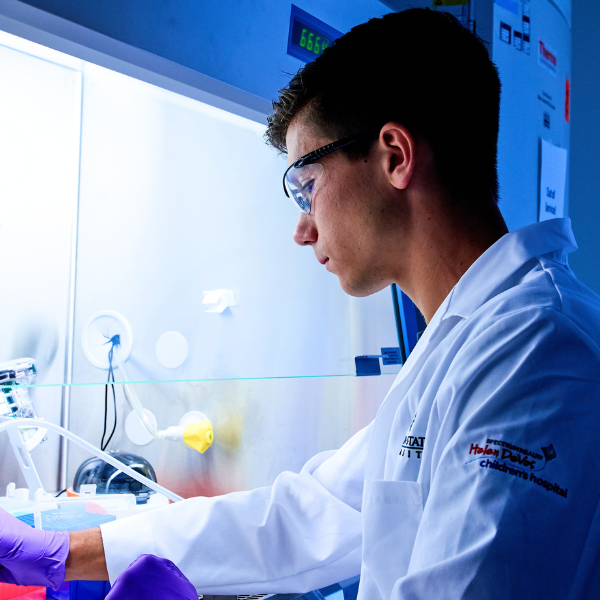MSU and Corewell Health Mark 17-Year Partnership by Adding $1M Investment in Exploratory Research
November 25, 2024

For 17 years, the Michigan State University College of Human Medicine and Corewell Health in Grand Rapids have funded more than $27 million in exploratory and developmental research projects that have brought together the clinical and scientific strengths of both institutions.
Now that partnership, known as the Corewell Health – MSU Alliance Corporation, is adding another $1 million to the total with a new round of grant funding that will help advance innovative treatments for patients.
“The innovation the Alliance brings to the Medical Mile in Grand Rapids continues to deliver incredible results,” said Aron Sousa, MD, dean of MSU College of Human Medicine. “From obstetrics, gynecology and reproductive biology to digging deeper into the causes of autism and healing chronic wounds, the Alliance allows the brightest minds to work together on moving research to real life.”
The five new projects, each receiving $200,000 in research funding, will begin next year and include:
Role of the HTR3A serotonin receptor in high-grade endometrial cancer
- Goal: To determine the role that serotonin plays in uterine cancers with a poor prognosis and whether drugs that target serotonin can affect the growth of these cancers
- Principal investigators: John Risinger, PhD, College of Human Medicine, and Gregory Gressel, MD, Corewell Health
Deep brain stimulation for autism spectrum disorder
- Goal: To test if deep brain stimulation using light stimuli in parts of the brain controlling memory and learning improves hippocampal function at the cellular, network and behavioral levels
- Principal investigators: Lucas Pozzo-Miller, PhD, College of Human Medicine, and Mike Bercu, MD, Corewell Health
The role of immune system genetics, the MTOR pathway and precision treatments in cardiac sarcoidosis
- Goal: To generate human data on a disorder of the immune system that impacts heart function while developing a mouse model to test new drug approaches to prevent impact on the heart
- Principal investigators: Daniel Vogt, PhD, College of Human Medicine, and Nagib Chalfoun, MD, Corewell Health
Radiomic biomarkers for patients with small renal masses
- Goal: To develop biological markers using X-ray or other radiographic technologies that will help predict the behavior of small kidney tumors
- Principal investigators: Adam Alessio, PhD, Colleges of Human Medicine, Osteopathic Medicine and Engineering; and Emerson Lim, MD, Corewell Health
Oxygenating living biomimetic bandage for the treatment of refractory chronic wounds
- Goal: To develop a living bandage that can deliver non-embryonic stem cells and oxygen to treat experimental wounds and accelerate healing
- Principal investigators: Nureddin Ashammakhi, PhD, College of Engineering, and Drue Orwig, DO, Corewell Health
“The true mission of the Alliance is to enhance collaboration between physicians and scientists that normally wouldn’t have the opportunity to work together,” said Surender Rajasekaran, MD, medical director of research at Corewell Health in Grand Rapids and associate professor at the College of Human Medicine. “The Alliance allows us to fund the more unique and really cool projects, too -- projects that typically wouldn’t be funded by federal agencies like the National Institutes of Health.”
Over the last five years, the Alliance has seen considerable growth in applications as well as significant improvement in the quality of research collaborations due to a complete restructuring of its funding mechanism and criteria.
“There are windows of time where grants can be submitted and all submissions are reviewed by a panel of experts to validate scientific merit, scope and likelihood of achieving the goals stated,” said Darryl Elmouchi, MD, chief operating officer of Corewell Health. “Ultimately, the many applications per period are weighed against one another and a select few are chosen. For those that aren't chosen, we give detailed feedback to better future applications.”
The partnership has also seen progress in helping to attract top talent to the Grand Rapids area. Since its inception, the Alliance has helped recruit and support 17 new scientists or physicians from across the world.
This story originally appeared in MSUToday.

